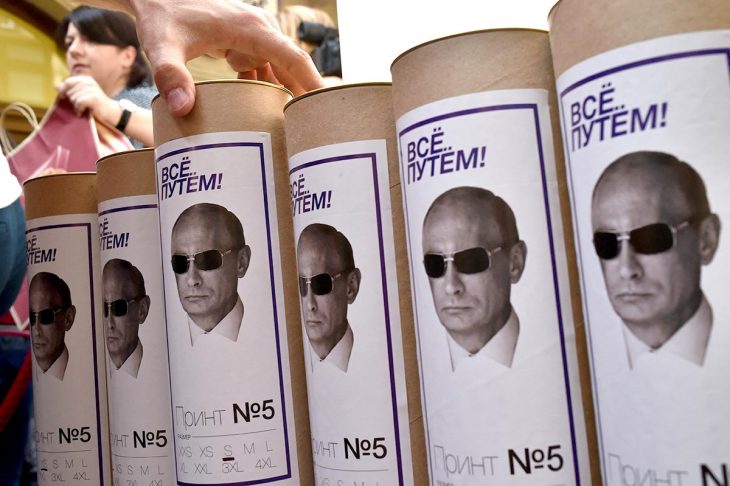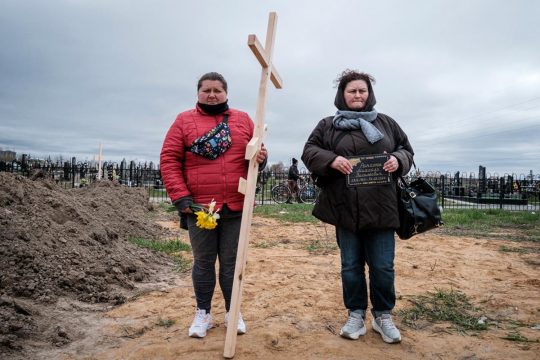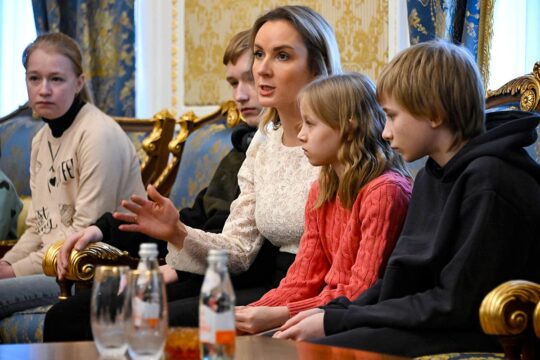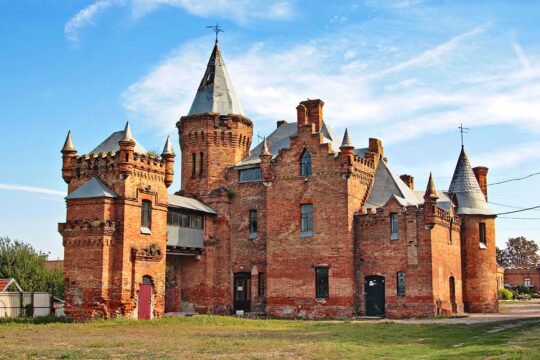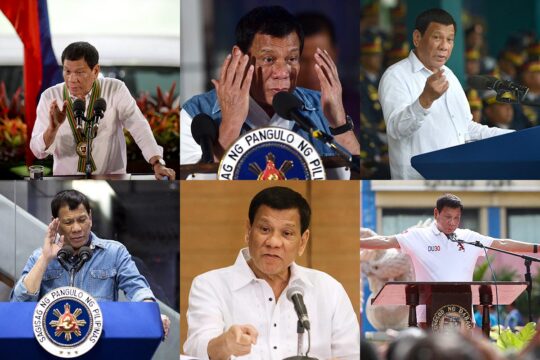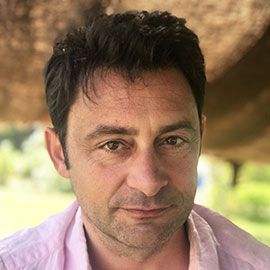JUSTICE INFO: How do you explain that it is mostly politicians talking of genocide while jurists are much more cautious?
JACQUES SÉMELIN: There is a very simple answer, which is that the word genocide is perceived today as the crime of crimes, so it is obvious that, by using this term, political leaders hope to gain emotional capital. This happens in many conflicts. What is interesting is to situate this rhetoric of genocide in the Russian-speaking world. I find it surprising that no one has really noticed it. In the 1980s, Serbs in Kosovo claimed that the Albanians were perpetrating genocide against them. This rhetoric justified their aggression against the Albanians, who were the majority. Russia has taken up this rhetoric. In 2008, [Georgian] President [Mikhael] Saakashvili was described as a new Hitler carrying out a genocide against the Ossetians. Putin has taken that line completely on board and so now, in the Donbass, the term genocide is used to justify the aggression. It is obviously a propaganda word, and it is a matter of deconstructing it and understanding that what the Russians want is to conquer the territories they are targeting.
The Ukrainian president also makes emotional use of it, but this time to present himself as a victim and call for international solidarity. He does this very well, but he is also in a register of propaganda. We know that journalists are fond of this type of emotional approach. But jurists cannot just take that step, nor even a certain number of politicians and political scientists like me. It is a battle of words and emotions to conquer public opinion, fought on the back of the dead.
For Europe and Ukraine, speaking of Nazism has strong resonance. Isn’t it this history that’s also evoked with the word genocide?
Yes, there is an absolutely tragic background of mass crimes committed in Ukraine in the period 1939-1945. And the formula that comes to my mind is that of Omer Barthov, a great historian of the Holocaust who worked on Ukraine, from which his family came. He talks about "mirrors of destruction". The use of the word genocide by [Russian President Vladimir] Putin and [Ukrainian President Volodymyr] Zelensky is just that. It's saying: I'm holding up a mirror to the destruction that you are doing, or that you intend to do. And this current rhetoric is built on the dead of 1939-45 and even before, since one must also count the famine that preceded it. Mass crimes have a tremendous amount of resonance in this region, and that's why Putin evokes Russia's war of liberation from Nazism, among other things. Again, this propaganda is built on the legacy and exploitation of the dead. The dead become the existential hostages of the living. They are dead, so they are used in one way or another to justify a political struggle.
But from a legal point of view, should we put aside the possibility of genocide?
From a legal point of view, one can criticize [US President Joe] Biden's speech where he used the word genocide. We think of the Shoah, we think of the Holocaust, with hundreds of thousands of people killed because they were Jews. We are not there, but should we completely put aside using the word genocide when Putin expresses a desire to deny the Ukrainian identity, which for him does not exist? It is very strong in his speeches. However, if we reread Raphael Lemkin’s first text in 1944, "Axis Rule in Occupied Europe", where we find his famous chapter on genocide, he uses the word not to define the destruction of a racial group but also a national one. Lemkin was Polish. He saw what was happening in Poland. It is this dimension of identity, of the Polish soul, which is central to his definition of genocide. And this is what made him announce the idea that genocide is a biological destruction of the group, but also a destruction of the identity of this group. And the 1948 Convention [on the prevention of genocide] defines well acts committed "with the intent to destroy, in whole or in part, a national, ethnical, racial or religious group, as such". There is indeed "national". What do we do with that? I am not a lawyer. I am not saying that this is the truth. But I would like to discuss it.
What would allow us to settle this debate?
It’s always about intent. Putin’s intent is to destroy the Ukrainian nation. But when you look at the facts, you see this is not possible. So there is this psychological, cultural, symbolic intent that comes up against the fact that it can’t be realized.
Intent is there, but it’s not possible, so does that mean there is no genocide?
Yes, we could say that. The intent is there but he cannot achieve it, so there is no genocide. What dominates is the crime of aggression. It is a state that invades another state. This is the basis of Putin's action. But his rhetoric, the rhetoric that supports this crime of aggression, is carried by a genocidal intent.
How is this different from what happened in the Balkans in the 1990s, which has been called “ethnic cleansing” and more rarely genocide?
My approach is to go back to the political logic and purpose. I have tried to get away from the emotional in all these debates, by trying to show how the massacre serves a political purpose. So I make the distinction, which I believe is fundamental in many conflicts not only today but throughout history, between "destroying to subjugate" and "destroying to eradicate". This seems to me to be the strongest, the most relevant thing from the point of view of political analysis.
Destroying in order to subjugate is to destroy part of the group but with the aim of subjugating what is left of it. This is Putin's logic. The effect of terror is to obtain the submission of the adversary. It is as old as war and linked to territorial conquests. This is what we are seeing, and I would even say that we could develop this aspect with new words that have unfortunately appeared in recent years. There is the term "urbicide", which came from the mayor of Sarajevo to say that they are trying to destroy the city. This destruction of the city is part of the project of subjugation. We see it at work in Mariupol. There, we are not at all in genocide, we are in the will to submit a region.
The other logic is destroying to eradicate. In this case, it is not only a question of destroying a group, but of eradicating this group as if it were a poisonous plant or a contagious disease. This is the logic that we saw at work in the 1990s with what was called ethnic cleansing and which led to genocide. I think this is a really solid distinction.
Putin’s goal is not eradication, it’s subjugation. I am freeing myself from a legal approach by going in that direction. Putin implements a logic of destruction-submission of the Ukrainians by grafting genocidal rhetoric onto it, because he knows that will touch people emotionally. But in fact, it is rhetoric, and this rhetoric is addressed to the Russians. It is to mobilize them in the war effort against the "Nazi" enemy. Putin, in this sense, is anchored in a past, in a propaganda that he considers can serve his cause.
On the Ukrainian side, the most impressive response is not speeches referring to genocide. What is most powerful is the patriotic response, the will to resist the invader, to show their willingness to defend themselves at all costs. It is this patriotic logic that prevails.
Ukrainian justice is moving fast. In a first war crimes trial, a young Russian soldier was sentenced to life in jail after pleading guilty. How do you see that?
It is not usual in history for a trial to take place while the war is going on. I am not too much in favour of this. The judge needs some distance. Justice, if done quickly, is also a way of asserting revenge. I almost expected, given the current ideological context, that this young man would be convicted of genocide. But no, he was convicted of a war crime. This clearly establishes a division between the political use of the word genocide and its more reasoned application in legal terms.
The International Criminal Court has been seized of the Ukraine situation by many States that are members of NATO and, to varying degrees, parties to the conflict, and they have given it unprecedented means. How can it preserve even the appearance of independent justice?
It can't. It has been my opinion for a long time that justice for mass crimes is political. Some crimes will not be judged because they were committed by the victors, and the victors will not judge themselves.
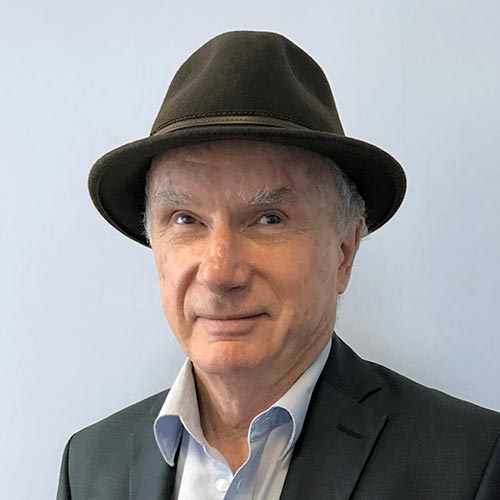
Jacques Sémelin is doctor of contemporary history and director of research at Sciences Po in Paris, France, specializing in genocide and extreme violence. He also holds a post-graduate degree in psychopathology. He founded and directed the Online Encyclopaedia of Mass Violence, is a member of the International Association of Genocide Scholars, and is the author of "Purify and Destroy, Political Usage of Massacres and Genocide” (published in 2005), among other works.


